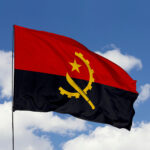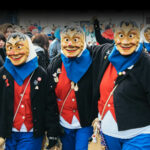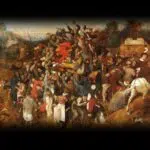Fasching begins at exactly 11 minutes after 11 a.m on November 11 and ends on Ash Wednesday. It’s a season that marks festivities that take place in Germany and other German-speaking countries before Lent — the 40-day fasting period — begins. Fasching is also known as ‘Karneval’ or ‘Fastnacht,’ depending on the region in which it is celebrated. The festival has been around for hundreds of years and can be traced all the way back to the 13th Century. Fasching is observed in different ways in countries such as Brazil and Italy; Switzerland and Belgium.
History of Fasching
Fasching originated in the German cities of Mainz and Speyer during the early 13th Century. By 1234, the festival had already become established in the city of Cologne. In the past, Fasching was often characterized by extravagant and frivolous traditions, including handing the keys of the city to a council of fools. Activities involved noisy parades, plays, masked balls, satirical plays, and excessive or impertinent behavior. As a result of the Protestant Reformation in Europe during the 16th Century, most of these elaborate traditions died down.However, the fun and entertaining nature of Fasching has been restored in recent times as it is marked by spectacular parades and parties all over the world. The women’s carnival is the first day of the street carnivals, known as ‘Weiberfastnacht’. On this day, women parade the streets in costumes and engage in harmless but mischievous behavior, such as cutting off men’s ties to leave only the knot. This is followed by an apologetic peck on their cheek. Rose Monday is another day of the festival where a four-mile parade is held, with members of local carnival clubs dressing up as witches, clowns, or wizards. People line the streets to watch the procession and take part in the fun.The height of the Fasching celebrations is called Shrove Tuesday or Fat Tuesday. In Germany, the day is celebrated on a small scale but in other parts of the world, the day is spent spectacularly as people attend and take part in parades in cities such as Venice, Rio de Janeiro, and New Orleans. On Ash Wednesday, the festival comes to an end and the 40-day fasting season begins.
Fasching timeline
Fasching is mentioned in “Parzival,” a medieval romance written by Wolfram von Eschenbach.
‘Fasching’ becomes well-established in the city of Cologne.
The Reformation begins, bringing about a revolution in Fasching traditions.
A variant of ‘Fasching,’ ‘Mardi Gras’ is first celebrated in the American city of New Orleans.
Fasching FAQs
Do offices and schools close for ‘Fasching?’
In some areas of Germany, entire cities shut down during the last four to five days of ‘Fasching’ to allow for celebrations. Though it’s not a public holiday, business and office activities might change because of the festivities.
Are ‘Fasching’ and ‘Mardi Gras’ the same?
‘Fasching’ is a period for feasts and celebrations in Germany and other German-speaking countries that lasts for weeks while ‘Mardi Gras’ in the U.S. begins on January 6 and runs until Fat Tuesday.
Can non-Catholics celebrate Fasching?
Of course. Fasching celebrations encompass all people, no matter their religious beliefs.
Fasching Activities
-
Live it up
‘Fasching’ is a time to shake off your worries and have a little fun. If you’re in a city where ‘Fasching’ or another form of it is celebrated, join in on the parades.
-
Watch the celebrations
Even if ‘Fasching’ isn’t celebrated in your city, join thousands of others in watching the parades online. You do not have to miss out on the fun.
-
Share it
Do you know a friend who likes to party? Let them know about Fasching or use the hashtag #fasching and send your loved ones a link to our website.
Why We Love
-
‘Fosnat’
In the German region of Franconia, ‘Fasching’ is known as ‘Fosnat.’
-
‘Fasnet’
In Swabia, in Southwest Germany, ‘Fasching’ is called ‘Fasnet.’
-
‘Fastnacht‘
In Mainz, a German city on the Rhine river, the festival is referred to as ‘Fastnacht.’
-
‘Karneval’
In Cologne, a 2,000-year-old city, ‘Fasching’ is called ‘Karneval.’
-
‘Fastenacht’
In Baden Württemberg, also in Southwest Germany, ‘Fasching’ is known as ‘Fastenacht.’
Why We Love Fasching
-
It’s a chance to unwind
‘Fasching’ gives people a chance to take a break from daily commitments and relax. It’s a time to get together with friends, spend time with family and celebrate in the community.
-
It fosters unity
The celebrations of ‘Fasching’ bring people from all over the world together. As people celebrate, divisions disappear.
-
It’s great for tourism and commerce
‘Fasching’ helps promote tourism and provides a great source of revenue for businesses during that period. It gives a boost to businesses such as hotels, restaurants, and transport services.
Fasching dates
| Year | Date | Day |
|---|---|---|
| 2022 | November 11 | Friday |
| 2023 | November 11 | Saturday |
| 2024 | November 11 | Monday |
| 2025 | November 11 | Tuesday |
| 2026 | November 11 | Wednesday |














































